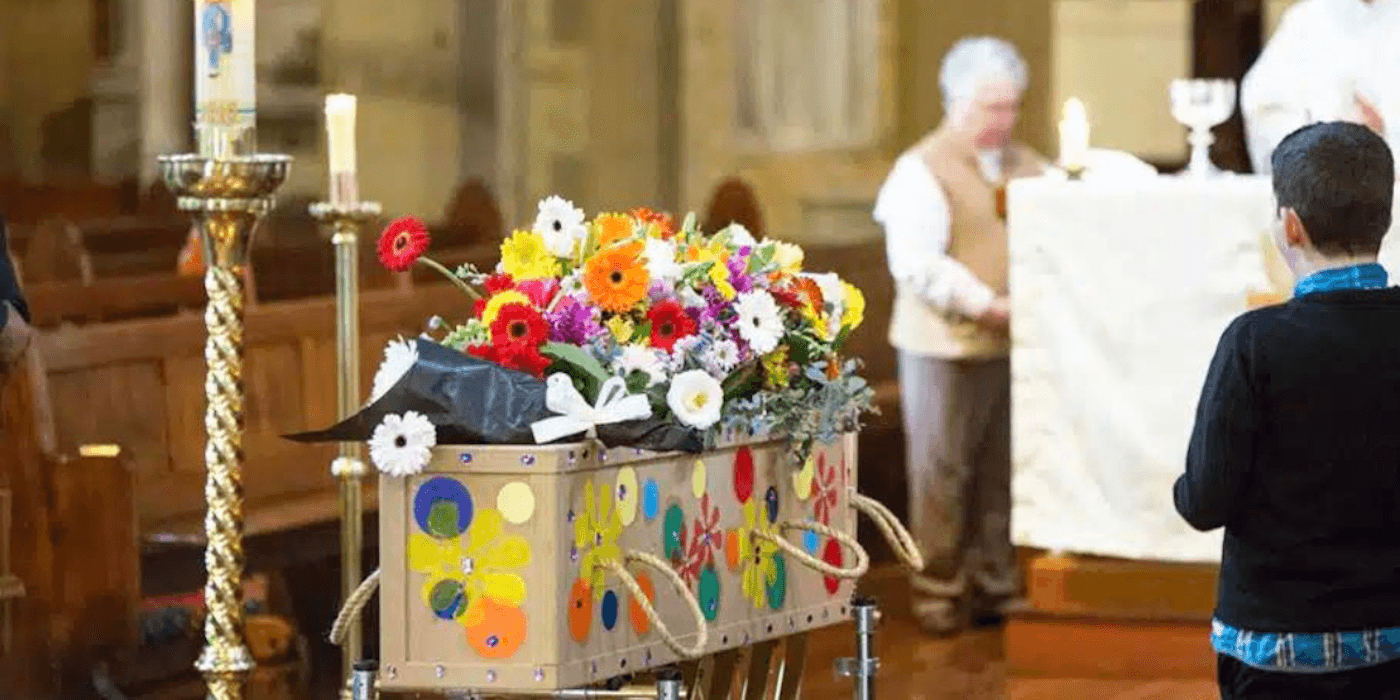Planning Ahead: Navigating Funeral Expenses with Funeral Loans

When someone you love departs this world, the last thing you want to worry about is the financial burden of arranging their funeral. Funeral costs can quickly add up, covering expenses such as the funeral service, transportation, casket or urn, and cemetery fees. Even if you have the funds to cover these expenses, you may not have a clear idea of the total costs involved.
This is where funeral loans can be a valuable option to consider. A funeral loan is a type of personal loan that can be used to cover the costs associated with a funeral, burial, or cremation. These loans are unsecured, meaning you don't need to put up collateral like your home or car.
By planning ahead and exploring the options available, including funeral loans, you can ensure that your loved one's final farewell is dignified and personalised, without unnecessarily adding to your financial burden during this difficult time.
Key Takeaways
- Funeral costs can be a significant financial burden, even if you have the funds to cover them.
- Funeral loans are a type of personal loan that can be used to pay for funeral expenses.
- Funeral loans are unsecured, meaning you don't need to put up collateral like your home or car.
- Planning ahead and exploring financing options can help alleviate the stress of paying for a funeral.
- Personalising the funeral service and arrangements can be an important part of the grieving process.

Understanding the Costs of Funerals

When a loved one passes away, the costs associated with funeral services can quickly add up. Understanding the typical expenses involved in funeral arrangements is crucial when planning ahead and exploring options like funeral loans to cover these costs.
Median Cost of a Traditional Funeral
According to the National Funeral Directors Association, the median cost of a traditional funeral in Australia is around $7,500. This figure can vary depending on the funeral home, location, and the specific services and arrangements chosen.
Common Funeral Expenses
The funeral costs can include a range of expenses, such as the funeral service, transportation, casket or urn, and cemetery fees. Other common costs may include embalming, the funeral director's fees, and any custom or personalised elements of the farewell.
Depending on your financial situation and the plans for your loved one's burial or cremation, the total funeral expenses can quickly add up, potentially creating a significant financial burden for the bereaved.
Pre-Planning and Funding Options

When it comes to pre-planning and funding funeral expenses, there are several options to consider. Exploring these options can help you and your loved ones feel more prepared and alleviate the financial burden during a difficult time.
Life Insurance Policies
Life insurance policies can be a valuable resource for covering funeral costs. Many policies offer a death benefit that can be used to pay for the funeral, burial or cremation, and other associated expenses. If your loved one had a life insurance policy, it's important to review the details and understand how the benefits can be accessed.
Payable-on-Death (POD) Accounts
A Payable-on-Death (POD) account is a type of bank account that allows you to designate a beneficiary who can access the funds upon your passing. These accounts can be a convenient way to set aside money specifically for funeral expenses, ensuring the funds are readily available when needed.
Savings Accounts
Building up a dedicated savings account for funeral expenses can be a prudent approach. By regularly contributing to this account, you can have a clear idea of the funds available to cover the costs associated with a funeral, burial or cremation. This can provide peace of mind and help you avoid financial stress during a difficult time.
Veterans Benefits
If the deceased was a veteran, they may be eligible for various benefits and services to assist with funeral expenses. This can include a burial allowance, a plot in a national cemetery, and other support. Connecting with the Department of Veterans' Affairs can help you understand the options available and ensure your loved one receives the appropriate honours.
Exploring Funeral Loans

A funeral loan is a type of personal loan that can be used to cover the costs associated with a funeral, burial, or cremation. These loans are unsecured, meaning you don't need to put up collateral like your home or car.
What is a Funeral Loan?
A funeral loan provides you with the necessary funds to pay for a funeral, burial, or cremation when you don't have the savings or other means to cover the expenses. These loans can be used to pay for a wide range of funeral-related costs, including the funeral service, transportation, casket or urn, and cemetery fees.
Advantages of Funeral Loans
One of the primary advantages of a funeral loan is that it can help alleviate the financial burden on you and your family during a difficult time. Funeral costs can quickly add up, and a loan can provide the necessary funds to pay for the services and ensure your loved one receives a dignified farewell.
Another advantage is the flexibility of repayment terms. Funeral loans often offer longer repayment periods compared to other types of personal loans, allowing you to spread out the payments and manage the financial impact more effectively.
Disadvantages of Funeral Loans
One potential disadvantage of a funeral loan is the interest rate that you may be charged. Depending on your credit score and financial situation, the interest rate on a funeral loan may be higher than other types of personal loans.
Additionally, if you have a lower credit score, you may be unlikely to be able to qualify for the best interest rates or the highest loan amounts. This could result in a higher overall cost for the funeral expenses.
Planning Ahead With Funeral Loans

When it comes to planning for your loved one's funeral, exploring the use of a funeral loan can be a thoughtful and practical approach. This involves several key steps to ensure you make informed decisions that align with your financial situation and the needs of your family.
Assessing Your Financial Situation
Begin by taking a close look at your current financial picture. Consider your savings, any outstanding debts, and your regular living expenses. This will help you determine how much you can realistically contribute towards the funeral costs. Remember, a funeral loan can supplement your available funds, but it's essential to understand the repayment terms and interest rates to ensure you don't take on more debt than you can manage.
Considering Payment Options with Funeral Homes
Reach out to local funeral homes and discuss the available payment options. Many funeral directors are empathetic to the financial burden that can come with planning a funeral and may offer flexible payment plans or the ability to spread the costs over time. This can help you better manage the upfront expenses and determine if a funeral loan would be a suitable complement to the payment options provided by the funeral home.
Seeking Support from Family and Friends
Don't hesitate to involve your family and close friends in the planning process. They may be willing to contribute financially or offer other forms of practical assistance, such as helping with the funeral arrangements or providing emotional support during this difficult time. By working together, you can ease the financial burden and ensure your loved one's farewell is personalised and dignified.
Arranging Funeral Services

When arranging funeral services, there are a few key considerations to keep in mind. The cost of burial or cremation can vary widely depending on your location, the funeral home you choose, and the specific services you require. It's important to get a clear understanding of these costs upfront so you can plan accordingly.
Burial or Cremation Costs
The median cost of a basic burial in Australia is around $4,000 to $6,000, which includes the funeral director's services, a basic casket, and a grave plot. Cremation, on the other hand, typically ranges from $2,000 to $4,000. Cemetery fees, urns or ash containers, and other associated costs can add to the overall expense.
Personalising the Funeral Service
Many families choose to personalise the funeral service to reflect the life and legacy of their loved one. This can include special readings, music, or even a custom-designed casket or urn. While these personal touches can add to the cost, they can also help create a meaningful and dignified farewell.
Regardless of whether you choose burial or cremation, a funeral loan can help you cover the necessary costs and give you the time and flexibility to plan a funeral that truly honours your loved one's memory. By understanding the available options and planning ahead, you can ensure that your final arrangements are both meaningful and financially manageable.
Conclusion
In conclusion, planning ahead for funeral expenses and exploring options like funeral loans can help alleviate the financial burden on you and your family during a difficult time. By understanding the costs associated with funerals, pre-planning your financing options, and carefully considering the advantages and disadvantages of funeral loans, you can ensure your loved one receives the dignified farewell they deserve.
Funeral loans can provide a flexible and empathetic solution to cover the costs of a burial, cremation, or personalised funeral service. While these loans may come with higher interest rates, they can help you access the funds needed to pay for the funeral arrangements, allowing you to focus on mourning your loss rather than worrying unnecessarily about the financial burden.
Remember, taking the time to plan ahead and explore all the options available, including funeral loans, can help you make informed decisions and keep the costs of a funeral within your financial means. By doing so, you can honor your loved one's memory and priorities while alleviating the stress and strain on your own financial situation.
How Driva Can Help You Finance Your Funeral Costs
Applying for a funeral loan with Driva is a seamless process. With the help of Driva, you can get the money you need quickly and easily. The application process is straightforward and transparent, with no hidden fees. Driva compares 30+ lenders so that you can receive personalised rates and choose the best option for your situation. Whether you have good credit or not, Driva can help you apply for a loan and secure the funding you require.
Frequently Asked Questions
What are funeral loans and how do they work?
Funeral loans are a type of personal loan specifically designed to help cover the costs associated with planning a funeral. Borrowers can apply for a funeral loan to pay for expenses such as caskets, burial plots, cremation, and other funeral-related costs. The borrower then repays the loan amount plus any interest according to the agreed-upon repayment terms.
How can I use a funeral loan to finance a funeral?
You can use a funeral loan to organise and pay for your funeral expenses in advance. This allows you to ease the financial burden on your loved ones and ensure that your final arrangements are taken care of according to your wishes.
What factors should I consider when applying for a funeral loan?
When applying for a funeral loan, it is important to consider the interest rate, repayment terms, and any potential fees associated with the loan. You should also explore options for securing a lower interest rate and understand the application process to make an informed decision.
Can I repay a funeral loan early?
Yes, many funeral loans offer the option for early repayment without incurring any penalties. By repaying the loan ahead of schedule, you can potentially save on interest payments and reduce the overall cost of the loan.
How does a funeral loan differ from using credit cards to pay for funeral expenses?
While credit cards can be used to cover funeral expenses, they often come with higher interest rates and may unnecessarily increase the cost of the funeral. Funeral loans typically offer lower interest rates and specific repayment terms tailored to funeral expenses, helping to keep costs manageable.
What are the benefits of planning ahead and taking out a funeral loan?
Planning ahead and securing a funeral loan can help alleviate the financial burden on your loved ones during an already challenging time. By ensuring that your final arrangements are financed, you can personalise your funeral experience and provide peace of mind for yourself and your family.
How can a funeral loan help with organising funeral arrangements?
A funeral loan provides a lump sum of money that can be used to cover various funeral expenses, from burial plots to memorial services. This financial assistance can help ensure that the deceased’s final wishes are honoured and that the funeral arrangements are carried out smoothly.


.png)







